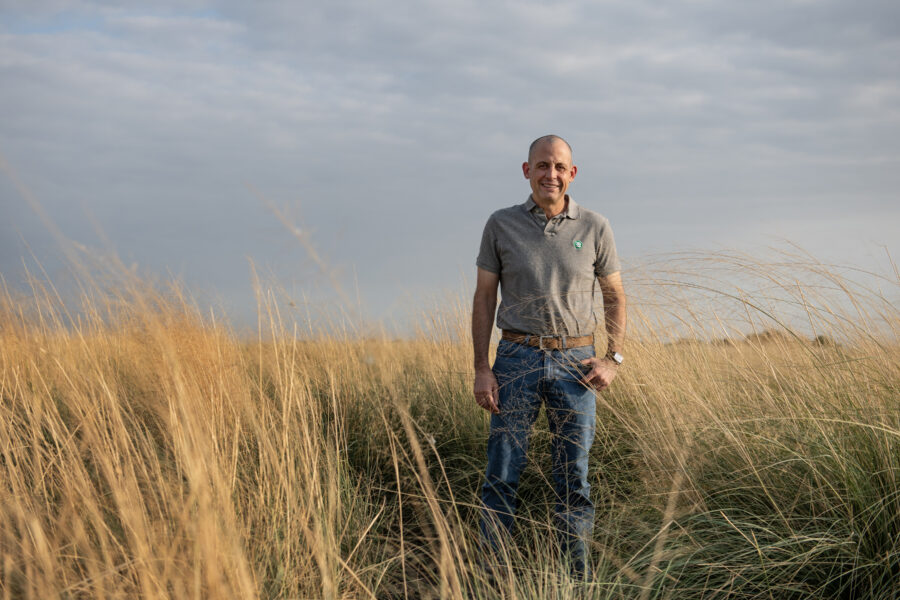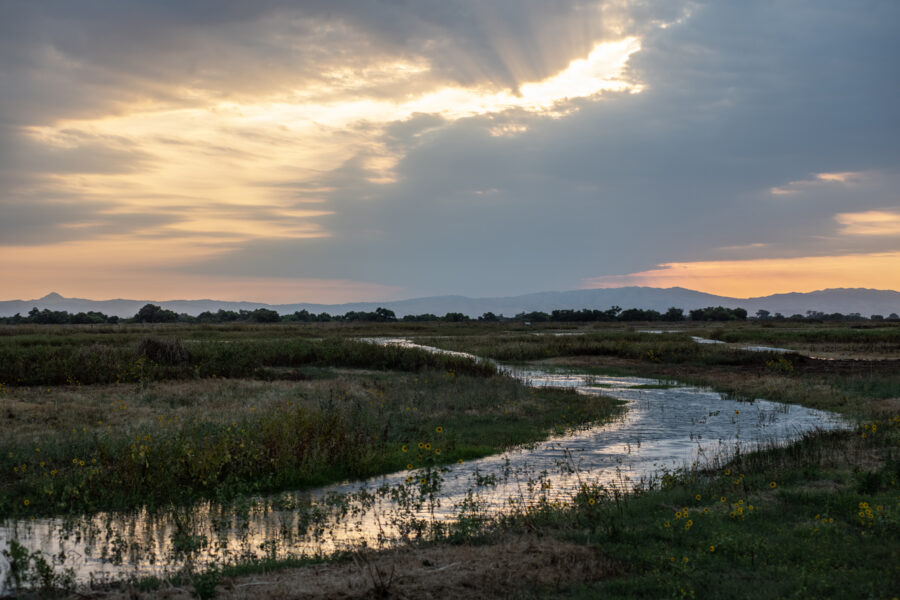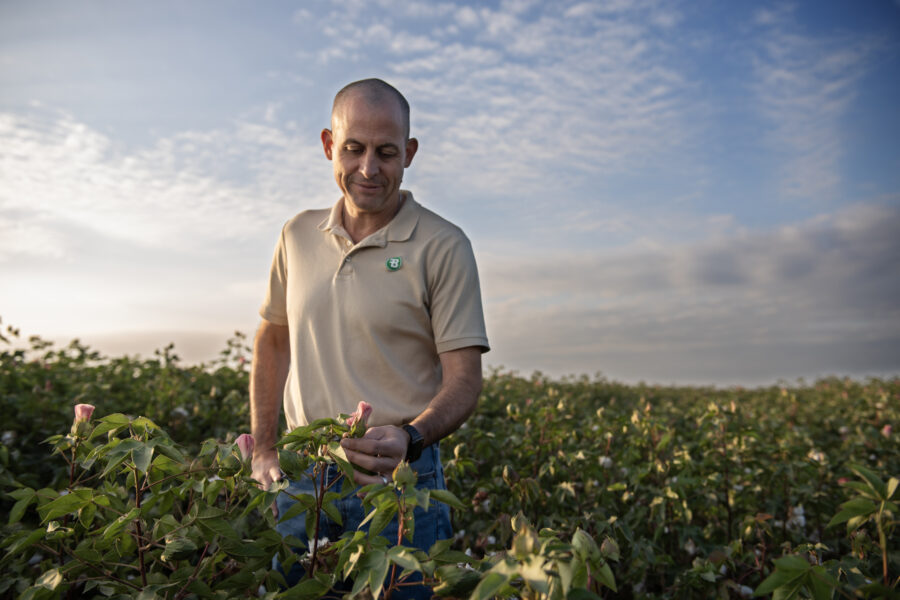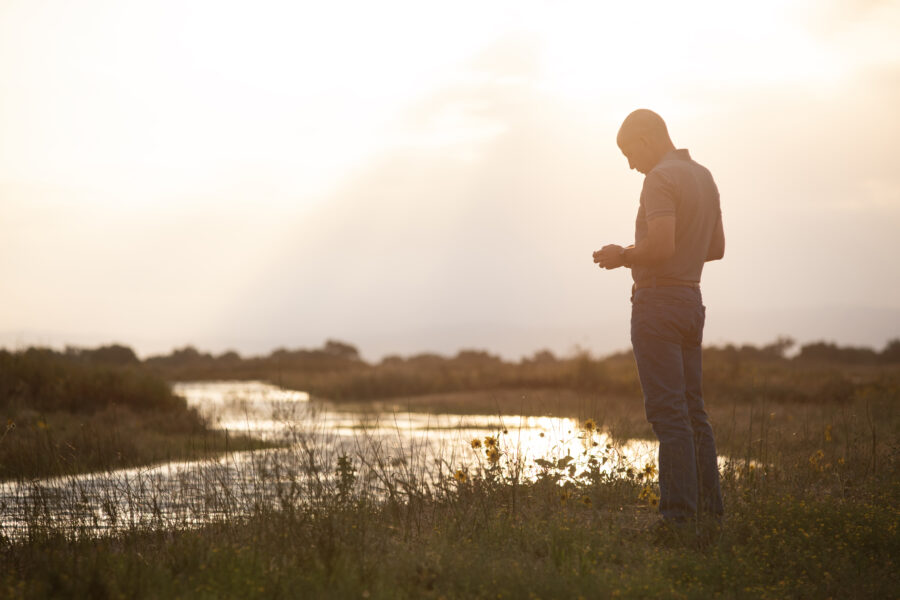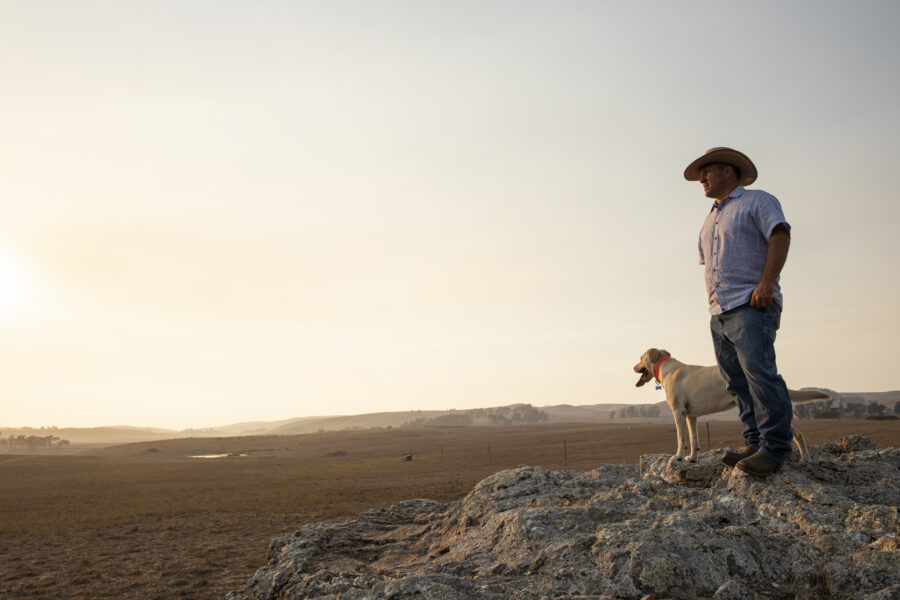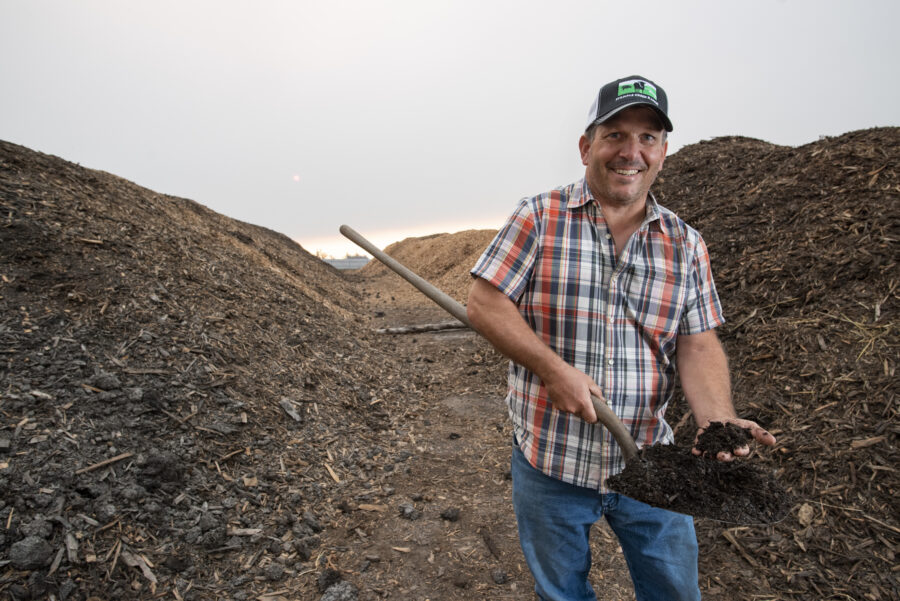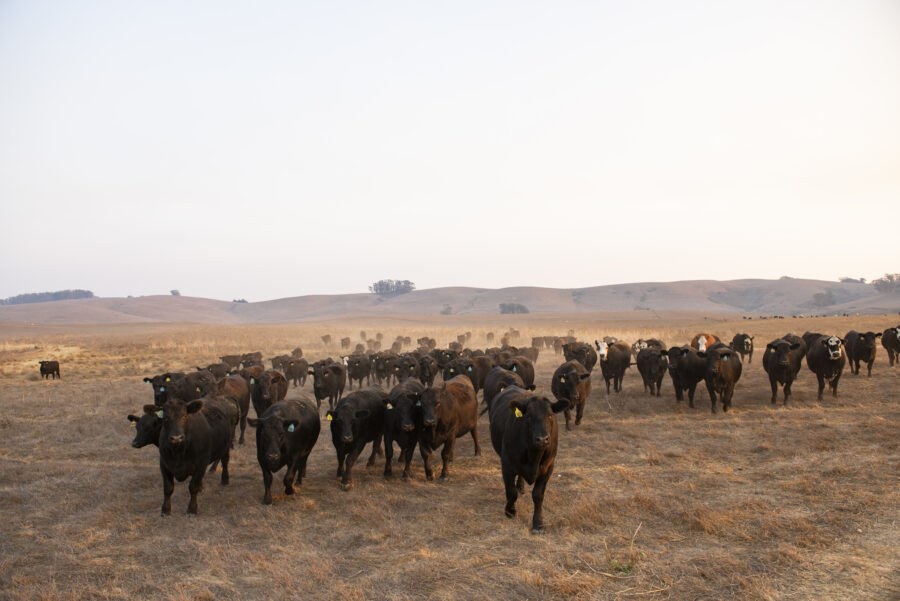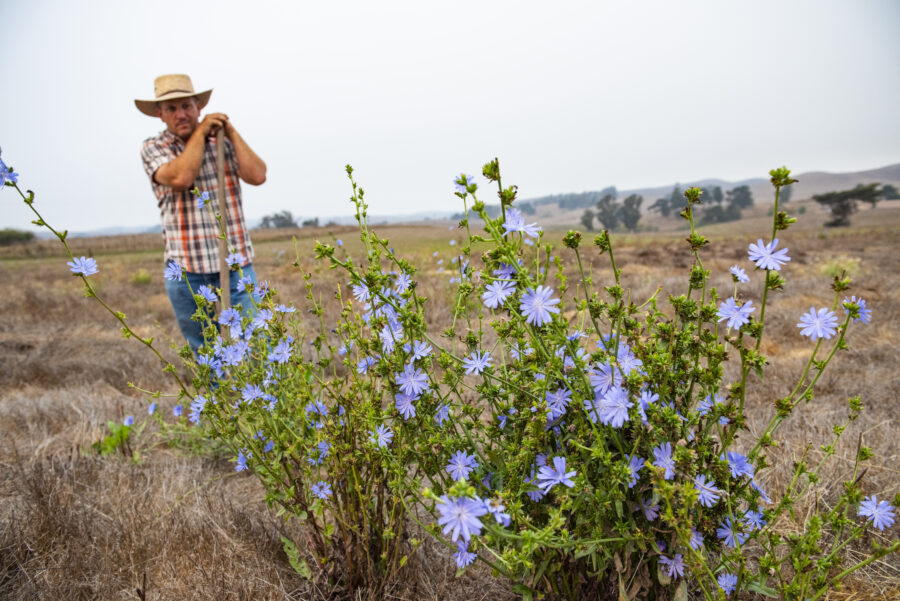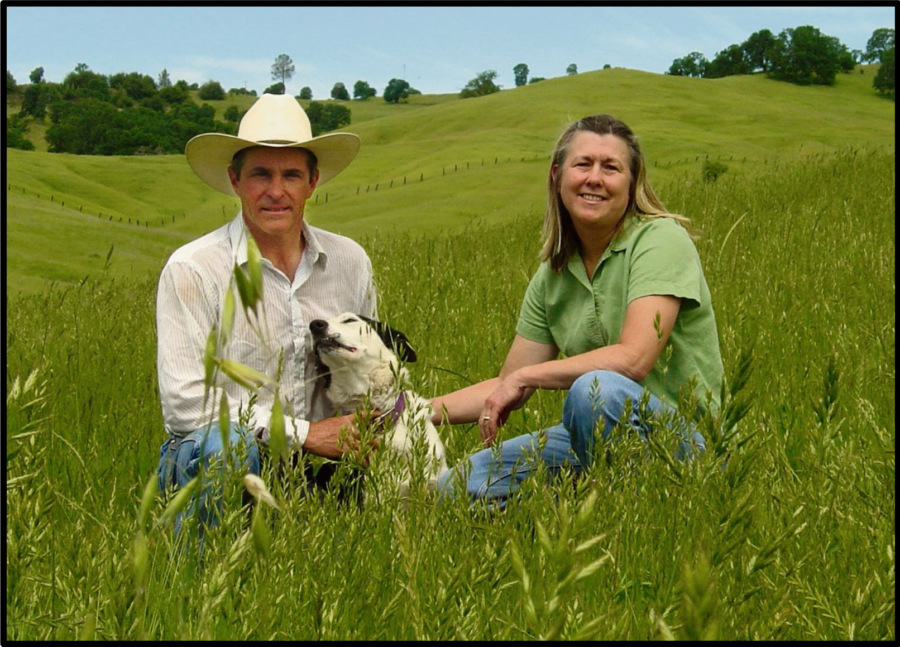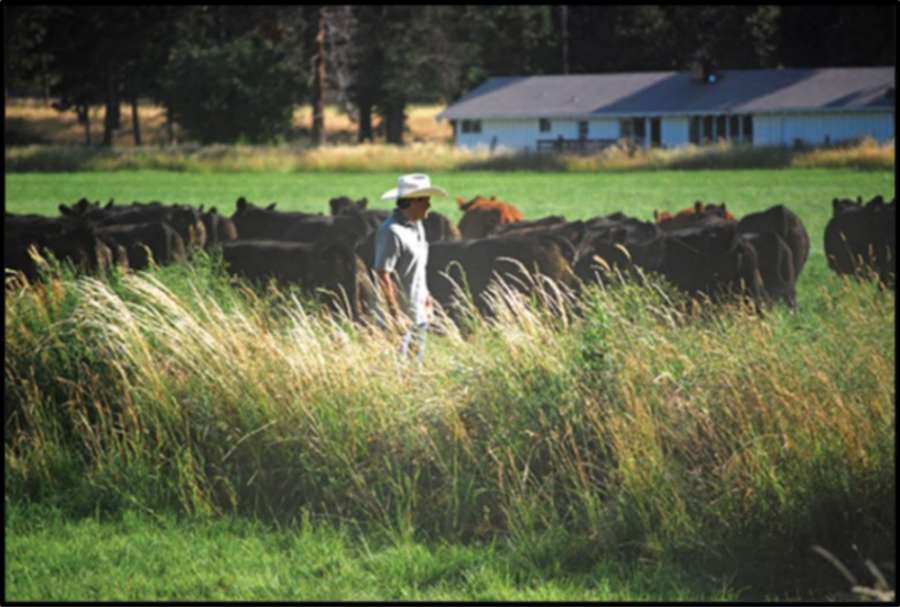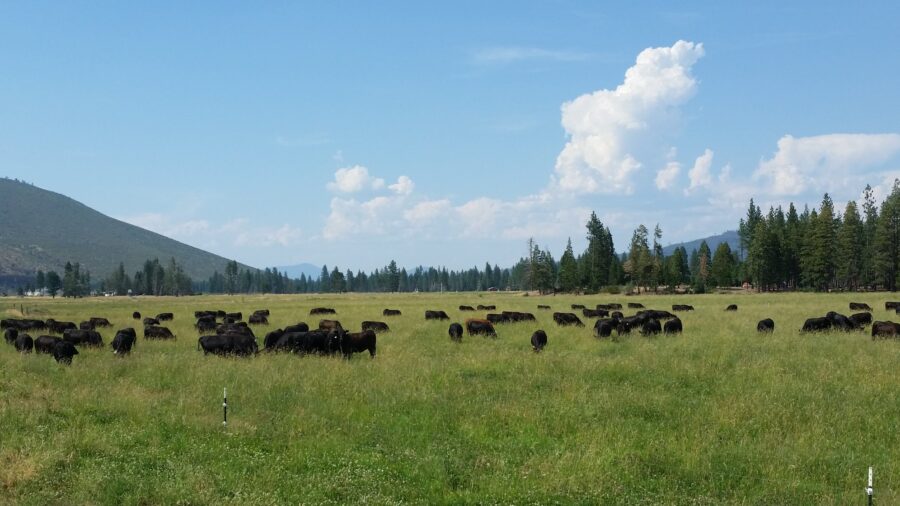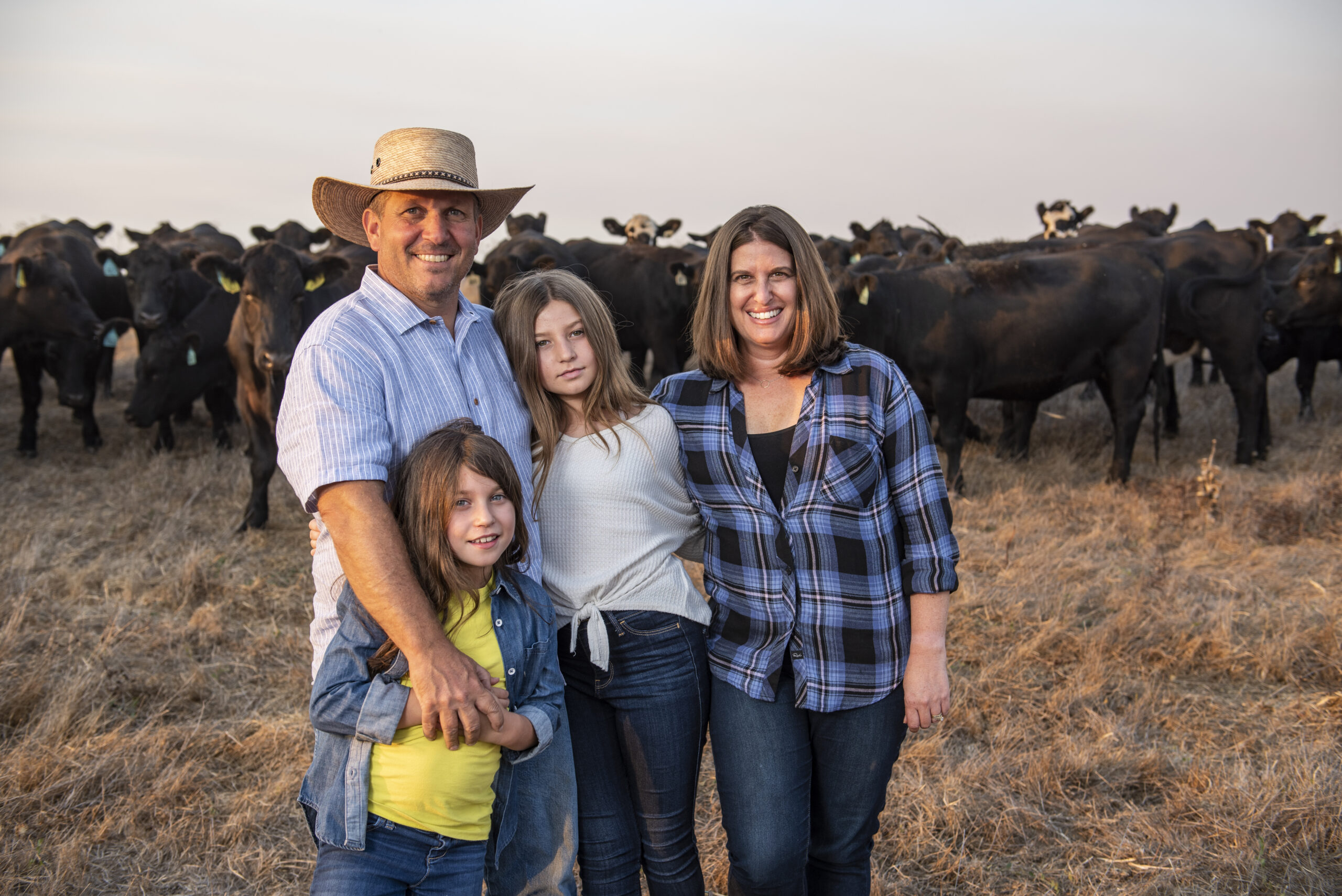
Sustainable Conservation is proud to help coordinate the California Leopold Conservation Award (LCA,) now in its 19th year! Thanks to Sand County Foundation, the California Farm Bureau Federation, and American Farmland trust for their leadership and support.
Given in honor of renowned conservationist Aldo Leopold, the award recognizes landowners who inspire others with their exemplary dedication to land, water, and wildlife habitat management on private, working lands. Since 2006, the award has recognized California farmers, ranchers, and foresters who best exemplify the Leopold conservation ethic throughout all their agricultural practices. The 2024 recipient will be announced during the California Farm Bureau Federation’s Annual Meeting in December. The recipient will receive $10,000 and a crystal award.
This year, the award will go to one of three remarkable finalists: Bowles Farming Company Inc., Hat Creek Grown, or Stemple Creek Ranch. While the farms differ greatly in their size and scale, location, and products, they all share a long-term commitment to produce quality produce while adhering to their strict conservation philosophies. Read the below profiles to learn more about the finalists’ unique stories!
Bowles Farming Company Inc. (Merced County)
Quick facts:
While Bowles adopted significant sustainable farming practices like drip irrigation, crop rotation, renewable energy usage, and organic farming, the farm’s conservation philosophy is better defined by its outside-the-box initiatives and well-rounded positive impact. A prime example is their wetland management effort: The farm fosters native forage habitats for pollinators and migratory waterfowl across their 640 acres of seasonal wetlands. Through their involvement in the Presley Program with the California Department of Fish and Wildlife, they monitor and document the wetland’s birds, bats, bees, and other keystone species while stewarding the critical habitat. In 2016, recognizing the need for more habitat, Bowles Farming restored a 6-mile riparian corridor on their property in collaboration with the US Fish and Wildlife Service, The Nature Conservancy, Audubon Society, and others.
Another standout effort of Bowles Farming is the establishment of the Great Valley Seed Company. This initiative addresses the scarcity of native Central Valley plant seeds by propagating and preserving local ecotypes critical for habitat improvement. With over 70 ecotypes of California native plant species collected and partnerships with NGOs, state agencies, and local entities, the company is actively contributing to positive native restoration outcomes in the central and southern San Joaquin Valley.
The Bowles Farming property also features a large-scale composting operation that converts 1,800 truckloads of green waste from surrounding cities into high-quality soil amendments annually. The compost is subsequently spread throughout the farm and sold to other buyers.
From wetland management, to seed preservation, to large-scale composting, Bowles Farming Company Inc. is a testament to the notion that productive agriculture and environmental stewardship can go hand in hand.
Stemple Creek Ranch (Marin County)
Quick facts:
Stemple Creek Ranch has been stewarded by the Poncia family for four generations in Tomales, California. Loren and Lisa Poncia are dedicated to both the land and their community, managing their beef, pork, and lamb operations to maximize soil health, biodiversity, and symbiosis with the natural ecosystem. They have pioneered practices to build carbon and organic matter in the soil, making the ranch a model of sustainable agriculture as a demonstration site for the Marin Carbon Project. In addition to habitat restoration and riparian protections on Stemple Creek, they host soil scientists to continually refine their carbon sequestration methods.
Expanding into ventures like wedding hosting, rental homes, and partnerships with local grocery chain Oliver’s Market and local restaurants, the Poncias bring a unique vision to each enterprise. They aim to reduce carbon emissions by focusing on local markets and minimizing transport distances in their direct-to-consumer sales. Loren adheres to six core soil health principles, from leaving crop residues to rotating cows meticulously — protecting the soil from compaction, improving water retention, and preventing pollution. With these practices, the Poncias have created an agile and perpetually forward-looking ranch ecosystem that thrives economically and environmentally.
Hat Creek Grown (Shasta County)
Quick facts:
As advocates for sustainable ranching, the Giacominis continually adapt their practices to address evolving environmental challenges, from implementing drought-resistant mobile watering systems to transitioning their herd to an all-grass-fed program. They have invested in on-farm infrastructure projects, like irrigation pipelines and riparian buffers, to enhance water efficiency and soil health while reducing erosion. In addition to their conservation methods, Hat Creek Grown engages in community education and outreach to raise awareness about the benefits of sustainable farming. They promote transparency in their operations, encouraging consumers to understand where their food comes from and the impact of their purchasing choices. Through collaborations with local organizations and support for regenerative practices, Hat Creek Grown is actively contributing to a more sustainable food system that benefits both people and the planet.
“Today only a tiny fraction of the US population is directly involved in the production of food and fiber,
yet everyone relies upon it. Of these individuals, only a few have developed a direct connection with land
like the Giacomini’s, who have worked to foster consumer connection with their food source,” said Rob Wooten, President of the Shasta County Farm Bureau. “Throughout their development of Hat Creek Grown they have implemented practices that have improved the integrity, stability and beauty of the lands entrusted to them.”
Stay tuned to find out which one of these fantastic finalists will receive the crystal award and a $10,000 prize for their farm! The winner of the 2024 award will be announced during the California Farm Bureau Federation’s Annual Meeting in December.
The Leopold Conservation Award in California is made possible thanks to the generous support of American Farmland Trust, California Farm Bureau Federation, Sand County Foundation The Harvey L. & Maud C. Sorensen Foundation, Farm Credit, The Nature Conservancy in California, McDonald’s, and California LCA recipient alumni.

